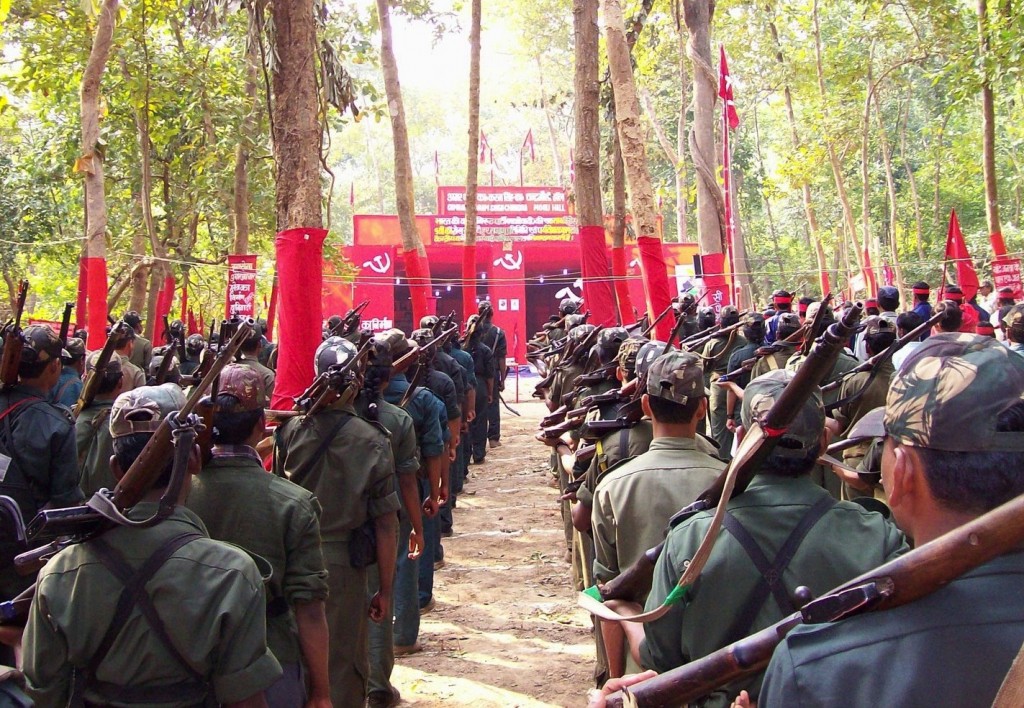On The Front Lines Of Revolution: An Interview With Comrade Amrut Of The CPI (Maoist)

```html
India's People's War: An Exclusive Interview with Comrade Amrut of the CPI (Maoist)
The Genesis of the People's War
The roots of India's ongoing people's war stretch back five decades, deeply intertwined with the reverberations of China's Cultural Revolution. Inspired by this transformative period, figures like Charu Mazumdar and Kanhai Chatterjee emerged, challenging existing communist parties and advocating for a distinctly Indian application of Marxism-Leninism-Maoism. The Naxalbari uprising of 1967, a pivotal moment in this history, signaled the beginning of armed struggle.
This struggle, guided by the CPI (Maoist), aims to address the exploitation of labor, the privatization of resources, and the rise of Modi's Hindutva agenda. Their strategy: a protracted people's war, building strength in the countryside and gradually encircling urban centers.
Navigating State Repression: Operation Green Hunt and Beyond
The Indian state has long sought to quell the Maoist movement, employing a series of counterinsurgency operations. From Operation Steeplechase in the 1970s to the more recent Operations Green Hunt, SAMADHAN, and Kagaar, the state has relentlessly pursued the CPI (Maoist).
These operations, encompassing tactics like Salwa Judum, Sendra, and the “Peace March,” represent a sustained campaign of repression, backed by large corporations and targeting not only the armed wing of the movement but also mass organizations and civilians.
The state has also employed legal tools like TADA, POTA, and the UAPA to suppress dissent and target activists, intellectuals, and democratic forces, labeling them "urban Maoists" and "pen-wielding Maoists."
"Operation Green Hunt is a continuation of these repressive campaigns," explains Comrade Amrut, Central Committee Member and Head of International Affairs of the CPI (Maoist).
The Modi Regime: A New Face of Repression
The Narendra Modi government, according to Comrade Amrut, represents a distinct shift. Characterized as "Brahminic Hindutva Fascism," the Modi regime has intensified the suppression of the Maoist movement, accelerating corporatization, militarization, and the use of drone strikes and aerial bombings.
Despite this increased repression, the CPI (Maoist) and its armed wing, the PLGA, continue to resist. Recent actions, like the raid on the Dharmavaram camp, demonstrate their ongoing commitment to armed struggle.
Social Transformation in Guerrilla Zones
Within the areas under their influence, the CPI (Maoist) is working to establish alternative forms of governance and social organization. Revolutionary people's committees are formed, prioritizing land redistribution, infrastructure development, and collective work practices. These committees also focus on providing essential services like education and healthcare, often lacking in these areas under state control.
The party also actively combats patriarchal structures and societal attitudes, challenging practices like forced marriage and promoting women's participation in all aspects of the movement.
"Although it is a long way to success in the fight against patriarchy," shares Comrade Amrut, "the revolutionary movement and the revolutionary women’s movement have brought considerable changes in the situation of women in the guerrilla base areas."
India's Geopolitical Role and the Question of China
Comrade Amrut dismisses the notion of India as an imperialist power, highlighting the country's dependence on foreign capital and technology. He criticizes the Modi government for worsening socioeconomic conditions, exacerbating inequality, and using religious rhetoric to distract from the plight of the majority.
Regarding China, the CPI (Maoist) maintains a critical stance. They argue that China transitioned from socialism to social-imperialism, driven by monopoly capitalism and expansionist policies. The party sees the "socialism with Chinese characteristics" narrative as a deceptive cover for imperialist ambitions.
"India is nothing but a poster-boy of US imperialism in BRICS and the Shanghai Cooperation Organization," asserts Comrade Amrut.
The Global Left at a Crossroads
Reflecting on the broader international landscape, Comrade Amrut emphasizes the importance of learning from the historical experiences of the Soviet Union and China. He calls for a renewed focus on revolutionary principles and international solidarity to combat imperialism and advance towards a communist future.
Source: maoistroad.blogspot.com